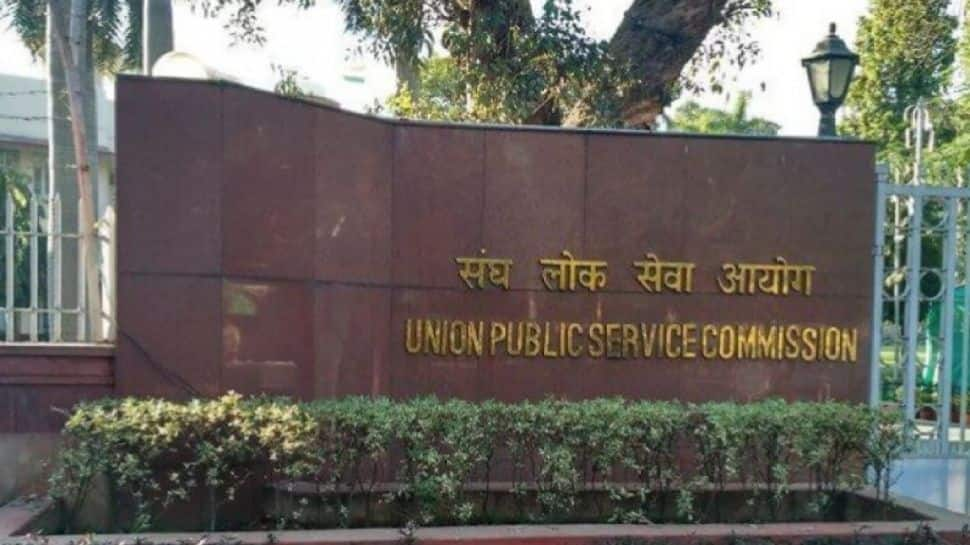Strategy For Competitive Exams
Competitive exams in India are more than just academic challenges; they are gateways to future careers and aspirations. With exams like JEE (Joint Entrance Examination), NEET (National Eligibility cum Entrance Test), UPSC (Union Public Service Commission), and others determining the trajectories of countless students, the journey can be both formidable and rewarding. In this expansive guide, we will meticulously explore effective study strategies, time management techniques, and invaluable resources, providing you with a roadmap to not just navigate, but conquer these competitive exams.
Understanding the Landscape
The first step in preparing for any competitive exam is to
gain a profound understanding of its unique landscape. Each examination, be it
JEE, NEET, UPSC, or others, comes with its own set of syllabi, patterns, and
difficulty levels.
JEE: For the Engineers in the Making
The JEE, with its focus on engineering disciplines, demands
a mastery of physics, chemistry, and mathematics. Understanding the exam
pattern, including the marking scheme, is crucial for effective preparation.
NEET: Paving the Path to Medical Aspirations
NEET is the gateway to medical colleges in India. It places
a significant emphasis on biology, accompanied by physics and chemistry.
Aspirants must delve into the specifics of the syllabus, understanding the
nuances of each subject.
UPSC: Civil Services Aspirations
The UPSC exam, encompassing a wide array of subjects,
requires a comprehensive approach. History, geography, polity, and current
affairs are pillars that demand meticulous attention.
CAT (Common Admission Test):For Management Aspirants
CAT is the gateway to prestigious business schools in India,
including the Indian Institutes of Management (IIMs). It assesses candidates in
quantitative aptitude, data interpretation, verbal ability, and logical
reasoning.
CLAT (Common Law Admission Test):For Aspiring Lawyers
CLAT is the entrance exam for admission to National Law
Universities (NLUs) in India. It tests candidates on English, general
knowledge, legal aptitude, logical reasoning, and mathematics.
GATE (Graduate Aptitude Test in Engineering):For
Postgraduate Engineering Studies
SSC CGL (Staff Selection Commission Combined Graduate
Level):For Government Job Aspirants
SSC CGL is conducted for recruitment to various government
jobs in ministries, departments, and organizations of the Government of India.
The exam assesses candidates in quantitative aptitude, general intelligence,
English language, and general awareness.
NDA (National Defence Academy) Exam:For Aspiring Military
Officers
AIIMS (All India Institute of Medical Sciences) Entrance
Exam:For Medical Aspirants
AIIMS conducts its own entrance exam for admission to
undergraduate and postgraduate medical courses. It tests candidates on subjects
like physics, chemistry, biology, and general knowledge.
NET (National Eligibility Test):For Lectureship and
Junior Research Fellowship
NET is conducted by the University Grants Commission (UGC)
for determining the eligibility of Indian nationals for lectureship and for the
award of Junior Research Fellowship in various Indian universities and
colleges.
RBI Grade B Exam:For Aspiring Bankers
The Reserve Bank of India (RBI) conducts the Grade B exam
for the recruitment of officers in Grade B (General) – DR, DEPR, and DSIM. It
assesses candidates in economic and social issues, finance and management, and
English language.
CSIR-UGC NET (Council of Scientific and Industrial
Research - University Grants Commission National Eligibility Test):For Research
Fellowship and Lectureship in Science Subjects
This exam is conducted for determining eligibility for
lectureship and for awarding Junior Research Fellowship (JRF) to Indian
nationals in the field of Science.
JAM (Joint Admission Test for M.Sc.):For Admission to
M.Sc. Programs
JAM is an admission test for Master of Science and other
postgraduate science programs at the Indian Institutes of Technology (IITs). It
evaluates candidates in subjects like physics, chemistry, mathematics, and
biological sciences.
In navigating this vast landscape of competitive exams, each
aspirant must tailor their approach to the specific demands of their chosen
examination. A well-informed and strategic preparation plan, coupled with
dedication and perseverance, is the key to success in these diverse and
challenging assessments.
Creating a Strategic Study Plan
Once the landscape is clear, the next step is to prioritize
subjects based on their weight in the exam. For JEE, the trio of physics,
chemistry, and mathematics should be the focal point. NEET candidates should
emphasize biology along with physics and chemistry. UPSC aspirants need to
cover subjects such as history, geography, polity, and stay updated on current
affairs.
Daily, Weekly, and Monthly Targets
A well-structured study plan is essential for success. Break
down your study sessions into manageable daily, weekly, and monthly targets.
This ensures a balanced approach to all subjects and topics.
Revision Schedule
Regular revision is the linchpin of effective preparation.
Allocate specific time slots for revisiting previously covered topics. Create
concise notes or utilize flashcards for quick review sessions.
Effective Time Management
Strategic Time Blocking
Divide your study hours into focused blocks, each dedicated
to a specific subject or topic. Incorporate short breaks to maintain
concentration and reduce mental fatigue.
Prioritize Weak Areas
Identify your weaker subjects or topics and allocate more
time to them. Strengthening your weaknesses is often the key to a well-rounded
performance.
Mock Tests and Time Trials
Regularly take full-length mock tests to simulate exam
conditions. Practice time trials to improve speed and accuracy, mimicking the
pressure of the actual exam.
Resource Utilization
Invest in reputable study materials, textbooks, and
reference guides. Utilize online platforms, educational apps, and video
lectures for a diverse learning experience.
Coaching Classes and Group Studies
Enroll in coaching classes for personalized guidance. Engage
in group studies to exchange knowledge and gain different perspectives.
Stay Updated with Current Affairs
For exams like UPSC, staying abreast of current affairs is
non-negotiable. Utilize newspapers, magazines, and reliable online sources.
Integrate current affairs into your daily study routine.
Maintaining Physical and Mental Well-being
Ensure you get 7-8 hours of sleep each night for cognitive
function and memory consolidation.
Healthy Lifestyle
Maintain a balanced diet, stay hydrated, and incorporate
regular exercise into your routine to enhance overall well-being.
Stress Management
Practice relaxation techniques such as meditation or deep
breathing to manage stress. Take short breaks to prevent burnout and maintain
focus.
Continuous Self-Assessment
Assess your progress regularly through self-tests and
quizzes. Identify areas for improvement and adjust your study plan accordingly.
Seeking Feedback
Engage with teachers, mentors, or peers to receive
constructive feedback on your performance. Use feedback to refine your study
strategies.
In conclusion, success in competitive exams is not just
about hard work; it's about strategic, focused, and holistic preparation.
Tailor these tips to your unique learning style, and remember that consistency
and perseverance are the keys to achieving your goals. Best of luck on your
journey to success!
FAQ
How early should I start preparing for competitive exams?
The earlier, the better. Starting early allows for
consistent, thorough preparation, reducing last-minute stress.
Is it necessary to create a study schedule?
Yes, a study schedule provides structure, helps set
realistic goals, and ensures a balanced approach to all subjects.
Is it beneficial to join a coaching institute for exam
preparation?
While self-study is possible, coaching institutes provide
structured guidance, resources, and a competitive environment that can boost
preparation.







Comments
Post a Comment